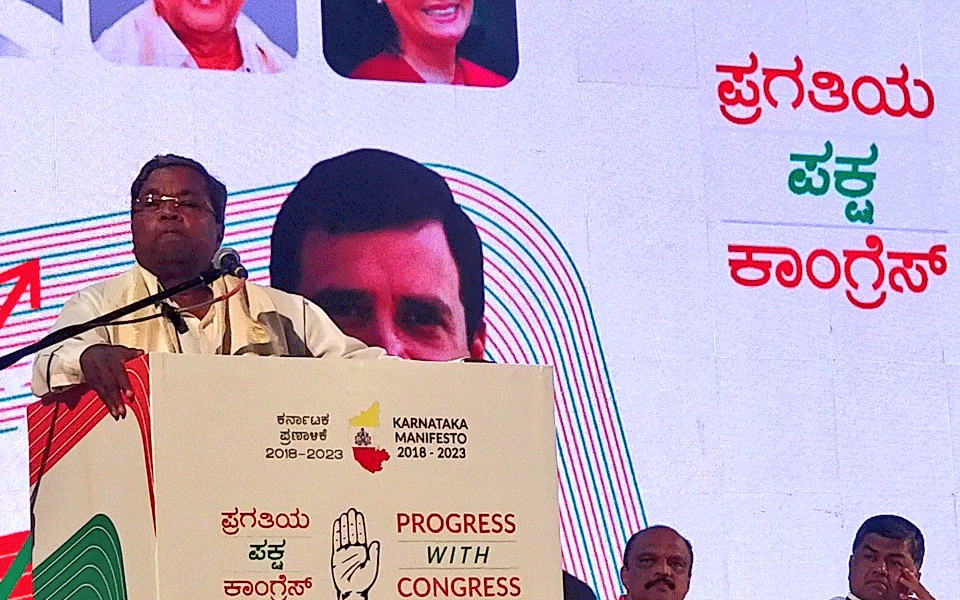Mangaluru: There is no wave of anti-governance against our government. This is the biggest achievement of our government, asserted Chief Minister Siddaramaiah.
Addressing the gathering after the release of Congress’s manifesto at TMA Pai hall, the CM said that the Law and Order situation is best in Karnataka. I am glad to tell that 90 percent of the promises we made in our previous manifesto has been fulfilled.
He said “an online-marketing system has been implemented in APMC. This has become a model for the country. Even the central government has appreciated this.
Let the Truth be known. If you read VB and like VB, please be a VB Supporter and Help us deliver the Truth to one and all.
Dubai: Smoke was seen rising from an area near the United States Consulate in Dubai, according to witness accounts cited by Reuters.
There was no immediate official confirmation on the extent of damage or whether there were any casualties in the incident.
Earlier, the US embassy in Riyadh, Saudi Arabia’s capital, was also attacked. Authorities reported damage to the premises, but no casualties were recorded.
The developments come amid heightened tensions in the region, with Iran continuing to target US interests in the Middle East following deadly attacks launched on Saturday by Israel and the United States.
Near US embassy in Dubai pic.twitter.com/z5VTZNVxNO
— Sahil Shah (@thesahilsshah) March 3, 2026





